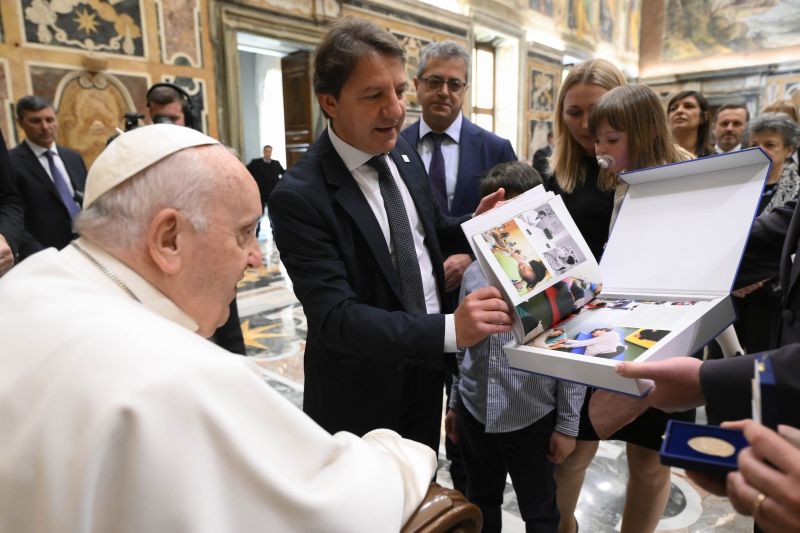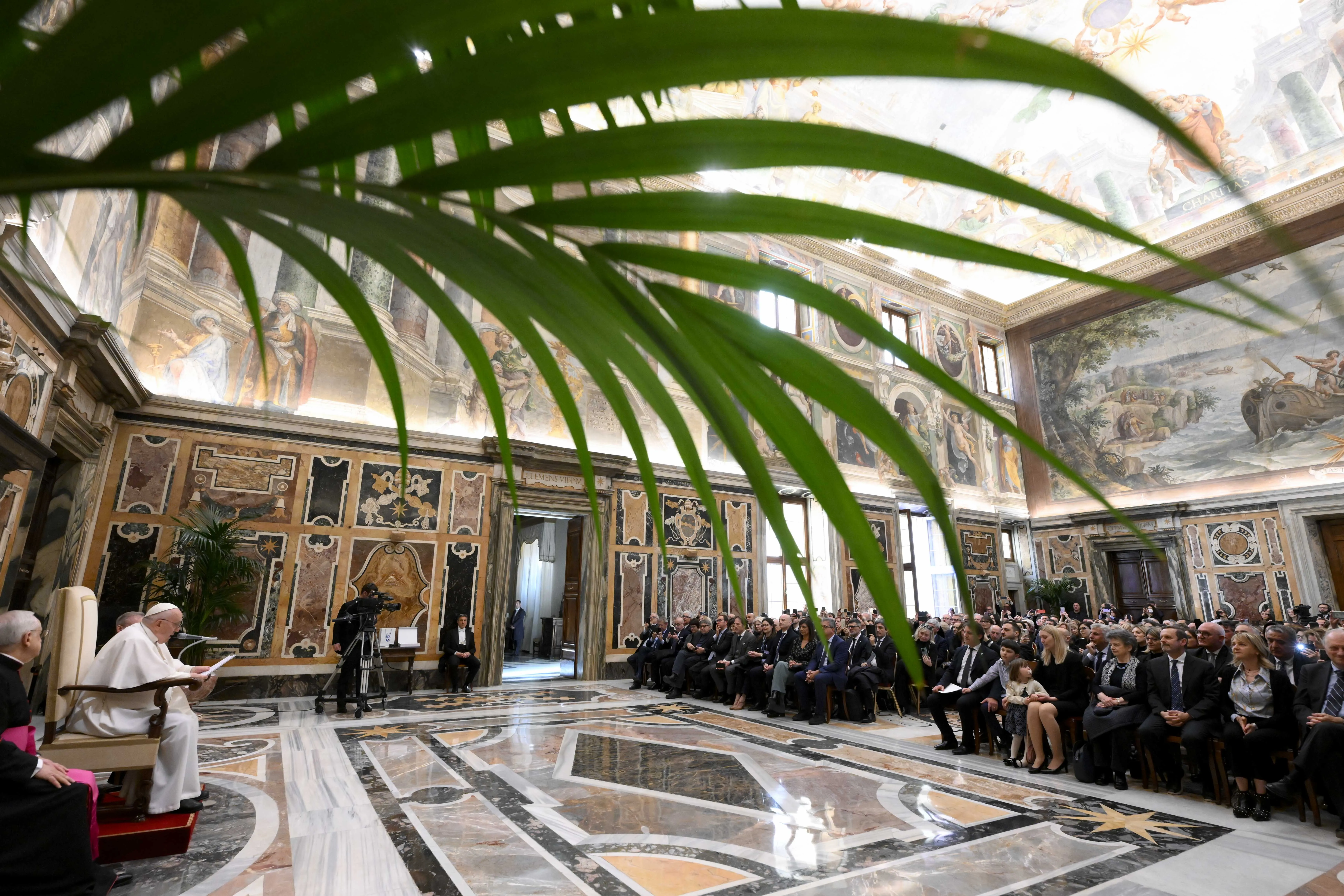 Pope Francis meets with executives and employees of the Istituto Nazionale della Previdenza Sociale, Italy’s main welfare agency, April 3, 2023. / Credit: Vatican Media
Pope Francis meets with executives and employees of the Istituto Nazionale della Previdenza Sociale, Italy’s main welfare agency, April 3, 2023. / Credit: Vatican Media
Rome Newsroom, Apr 3, 2023 / 09:00 am (CNA).
Pope Francis has urged Italy’s main welfare agency not to forget the contribution of foreign workers.
“It should not be forgotten that foreign workers who do not yet have Italian citizenship also contribute to the pension system,” the pope said in the Vatican’s Apostolic Palace on April 3.
“It would be a good sign to be able to express gratitude to them for what they do,” he said. “Social security also reminds us that ‘everything is connected’ and that we are interdependent on each other.”
Francis met 400 employees of the Istituto Nazionale della Previdenza Sociale, better known as INPS, to mark the institution’s 125th anniversary.
INPS is the main welfare agency of the Italian public pension system. It serves more than 42 million people, providing retirement pensions and other state welfare such as social security, maternity leave, disability benefits, and workers’ compensation.
“Social life stands because of supportive community networks,” Pope Francis said. “The common good passes through the daily work of millions of people who share the principle of the bond of solidarity among workers.”
He acknowledged Italy’s aging population as he urged the agency to promote dignified, stable work and to fight illegal labor.
The pope appealed to them “to guard a welfare system that is up to the challenges of societies that, like Italy’s, are growing older and older.”

Dignified work “is always ‘free, creative, participatory, and supportive,’” he said, quoting the apostolic exhortation Evangelii Gaudium.
“Welfare is a form of participation in one’s own and others’ well-being,” he continued. “Setting aside economic resources and ensuring access to health care are valuable assets that can hold together the different seasons of life.”
INPS Director General Vincenzo Caridi said Monday’s meeting was a chance to listen closely to Pope Francis “at a time when the sphere of social work and closeness to the least is (in continuity with the great pontificates that have confronted the challenge of modernity) the cornerstone of his message.”
Caridi said “the tree of the welfare state is nourished by many cultural roots, among them certainly the social doctrine of the Church. His is an invitation, a spur which gives strength to all employees of the Institute — believers and nonbelievers alike — who are called to renew the spirit of service with which they carry out their daily commitment.”
In his speech, Pope Francis used two stories from the Bible to illustrate both a good and a bad model of welfare.
A “bad welfare,” the pope said, is like the greedy man in the parable from the Gospel of St. Luke who builds a bigger warehouse to hold all of his crops, planning to rest, eat, drink, and enjoy himself, “but God said to him, ‘You fool, this night your life will be demanded of you; and the things you have prepared, to whom will they belong?’”
“Those who accumulate only for themselves end up deluding themselves,” Francis said.
An example of “good welfare,” instead, is that of the patriarch Joseph, he said.
As governor of Egypt, Joseph ordered that some grain be put aside from the abundance in order to be prepared for the future, when there may be a period of famine.
“Joseph not only trusts in God’s providence and recognizes it, but [he also] shows foresight for the good of the people,” Francis explained. “He knows how to look forward; he envisions good even when evil seems to prevail; he cares for the people entrusted to him. And this is your vocation: taking care of people in the future.”
